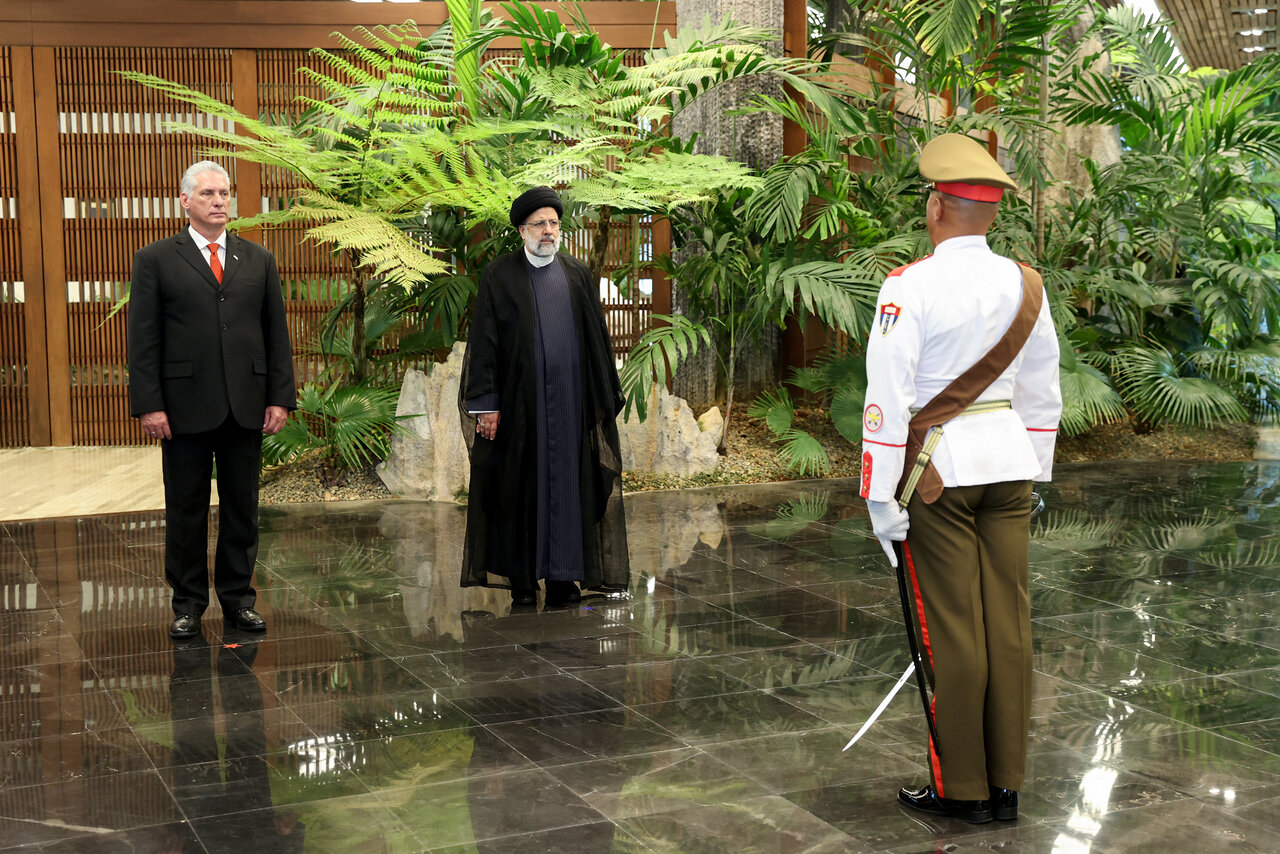The commonalities that took President Raisi to Latin America

TEHRAN – Iran shares many political and economic commonalities with Venezuela, Nicaragua, and Cuba which the Iranian president visited recently.
Last week, the President of Iran, Ayatollah Seyed Ebrahim Raisi, visited three Latin American countries: Venezuela, Nicaragua and Cuba. There are several reasons to claim that the first visit of the Iranian president to Latin America can open an important and new chapter in the ties between Iran and Latin America.
Despite the extensive efforts of the United States to isolate the Islamic Republic of Iran, it has recently achieved significant success in the field of foreign policy. Membership in the Shanghai Cooperation Organization, establishing closer ties with BRICS countries, and reviving relations with the Persian Gulf countries have been part of the activities of the new Iranian government in international politics.
Now, Ayatollah Raisi is thinking of expanding political and economic relations with like-minded countries in this region by traveling to Latin America.
Identity
Despite the wide geographical distance, significant commonalities can be found between Iran and the three Latin American countries that President Raisi visited. The ruling government of these four countries all emerged from a people's revolution, whose characteristics are freedom, independence, and anti-imperialist beliefs. Common recognition of the international system has been the most important reason for the closeness of these countries to each other.
Latin American countries have been fighting for years against the unilateral influence of the United States in the region in order to assert their rights. On the other hand, the Islamic Republic, which has been facing numerous enmities of the United States since the beginning of the revolution in 1979, has always opposed the will of the United States in the West Asia region. Perhaps Donald Trump, the former president of the United States, can be considered the most obvious face of the common enemy of Iran and these countries, especially Venezuela.
A few days ago, Trump confessed in a speech that his target of putting pressure on Venezuela is to rob the country of its natural resources. Trump is the same person who tried to bring the Islamic Republic to its knees by applying crippling international sanctions, and when it did not succeed, he martyred General Qassem Soleimani, the hero of the fight against terrorism.
Today, Iran, Venezuela, Nicaragua and Cuba with their mutual will, as well as the historical decline of the United States, see more opportunities to strengthen their relations in various fields without interference from the United States.
Objective interests
Despite the mentioned identity commonalities, in the new international order, countries need to define bilateral and multilateral interests more than ever. Many thinkers of international relations believe that the new order is network-oriented and based on extensive interactions. This means that regardless of political biases, countries need mutual economic benefits to strengthen their ties. Actually, political convergence provides better situation in this matter.
It seems that if until now Iran's view of Latin America has been a political one, the new government of Iran is trying to make economic benefits for both sides in this region. For this reason, the signing of many economic agreements is on the agenda of the parties. Based on the declared goals, the parties are looking for cooperation in many fields such as communication and information technology, energy, insurance, sea transportation, higher education, agriculture, pharmacy and medicine, cultural exchanges and also the development of mining cooperation.
Undoubtedly, the demand for justice of countries like Iran, Venezuela, Nicaragua and Cuba at the global level will not be fulfilled except with the extensive economic convergence of these countries. The new multipolar international order will provide unique opportunities for independent countries to pursue the mutual interests of their nations. Today's independence of these countries in order to exercise their will is the result of the sacrifices of great people such as General Qassem Soleimani and Commander Hugo Chavez.
